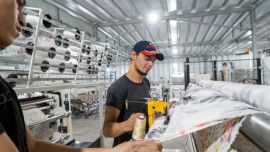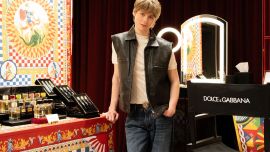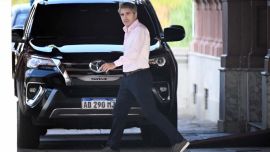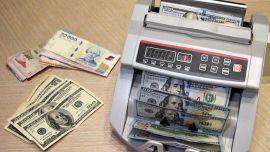Presidential candidate Roberto Lavagna promised to crack down on the most profitable emerging market carry trade if elected in October.
Lavagna, a former economy minister who is polling third before the Aug. 11 primary vote, said he would limit speculative capital inflows, even if that requires forcing foreign investors to deposit at the Central Bank US$30 of each US$100 they bring into the country. He established the same rule when he was a minister for ex-president Néstor Kirchner. He said he wouldn’t limit capital outflows, though.
The comments come as investors pile on the carry trade – buying Argentine peso-denominated bonds with borrowed dollars – to take advantage of benchmark rates of around 60 percent and a stable peso ahead of elections. Argentina’s carry trade has been the most profitable in emerging markets in 2019, returning 13 percent in dollar terms so far this year. Lavagna also criticised President Mauricio Macri for artificially maintaining a stable peso.
“The carry trade dominates the Argentine market,” Lavagna, 77, said in the headquarters of his consulting firm overlooking Buenos Aires’ iconic 9 de Julio Avenue. “We want the least possible intervention in the foreign exchange market – in the past, measures were applied when necessary, when speculative capital flew in.”
Lavagna is polling in third place, behind opposition candidate Alberto Fernández and Macri. The election is increasingly polarised, with almost 80 percent of the electorate split between the top two contenders. Lavagna, who said dropping out of the race before the October vote is out of the question, declined to discuss his expectations for the August 11 primary.
Other comments from Lavagna
IMF
“I think the same way everyone else does, including the government. We must refinance at least the repayment periods because in 2021 and 2020 we all know Argentine won’t have the resources to pay everything at once.”
October vote
“I won’t back down before the first-round [vote in October], the decision to stay in the race is final. It’s out of discussion.”
Inflation
Solving the inflation problem requires an “increase in economic activity.”
“As far as I know, an amount on the supply side is a necessary condition, even if not a sufficient one, but certainly a necessary one for stabilization.”
EU-Mercosur deal
“I negotiated the EU-Mercosur deal for many years. To illustrate my view, I’ll use a statement from President Emmanuel Macron: For now, it’s good. We’ll see later on.”
“I support the most open trade policy possible.”
Argentina’s key problem
“We’ve seen eight years of stagnation as two failed programs didn’t understand the need to expand supply and demand simultaneously.”
“The populist government thought that promoting consumption would lead to economic expansion, but instead it generated inflation because it did nothing for demand.”
“The current administration emphasised supply, talking about a wave of investments that never arrived because no one invests in an expensive country with no demand.”
Inflation targeting
“When I was a minister, I had a chance to discuss this with John Taylor, then US Treasury secretary and the creator of this method. His response was categorical: under no circumstances; Argentina doesn’t meet the preconditions for inflation targeting. These conditions haven’t changed to this day.”






















Comments